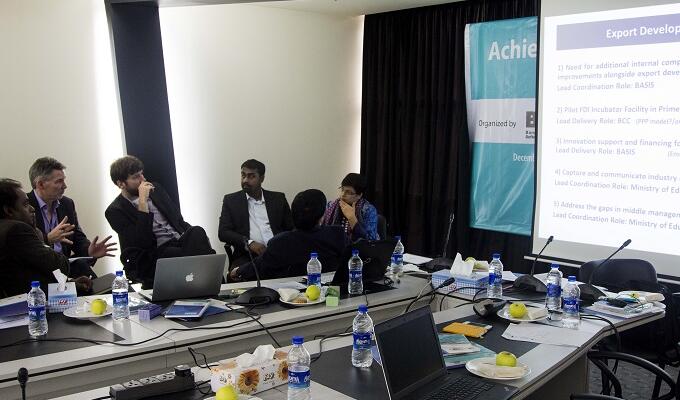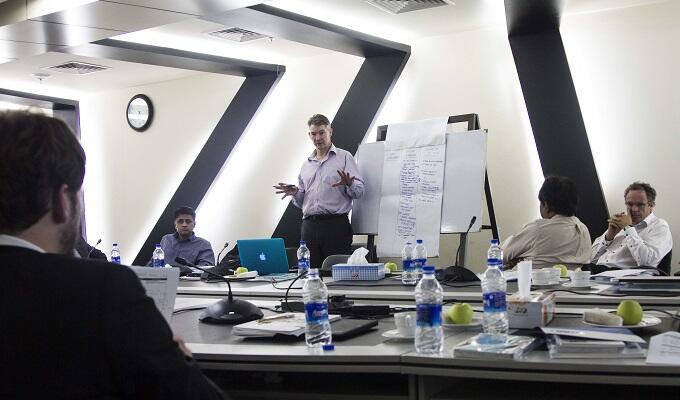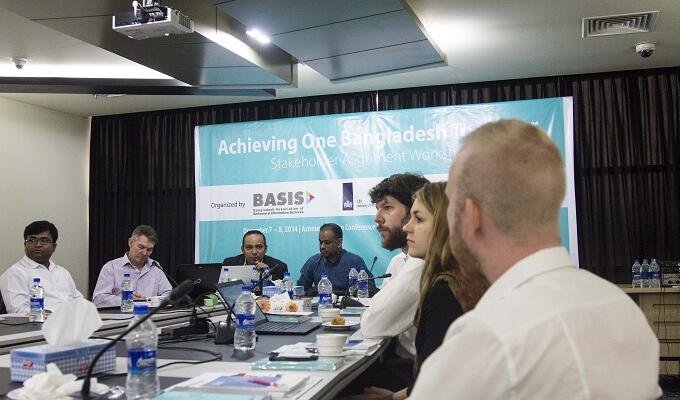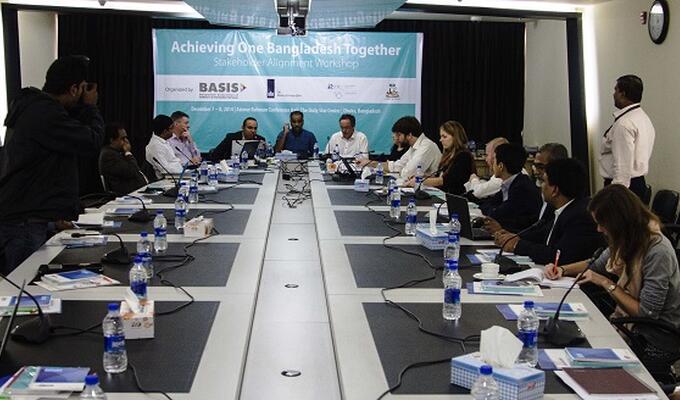



Dhaka Seminar Explores how to Boost Competitiveness of Bangladesh ITC Sector (en)
Attracting larger information technology companies into Bangladesh, supporting the growth of key indigenous companies, and increasing revenue from IT product development will be crucial to achieving Bangladesh’s objectives to boost IT-sector activity, jobs, and exports. These were among the key conclusions reached at a 7-8 December seminar in Dhaka bringing together government and development partner representatives as well as key IT and IT-enabled services companies.
The seminar was the product of a meeting between Bangladesh’s State Minister of ICT. Zunaid Ahmed Palak, and Rob van Eijbergen, a member of the steering group of Netherlands Trust Fund III (NTF III), a multi-year, multi-phase Dutch-backed project with the International Trade Centre (ITC) to boost export competitiveness in countries currently including Bangladesh.
The goal of the seminar was to encourage the various stakeholders present to coordinate their efforts to meet the ‘One Bangladesh Vision’, a government plan to enhance the export competitiveness of the IT and ITES industry in Bangladesh.
The ‘One Bangladesh Vision’ aims to achieve, by 2018, US$1bn in IT services and software exports, 1 million trained and employed skilled IT professionals, contribute 1% of GDP from the software and IT sectors. These objectives in turn contribute to the attainment of ‘Vision 2021 – Digital Bangladesh’, a national programme that aims to use modern technology to improve every aspect of life by 2021.
‘This seminar has been an excellent exercise, coming up with specific target-oriented action items, which will help BASIS to achieve ICT industry growth expectations,’ said Russell T. Ahmed, acting president of the Bangladesh Association of Software and Information Services (BASIS), a leading industry association.
‘The Executive Committee of BASIS will be very keen to review the progress made under this plan at the end of the plan period and the lessons learnt to take the industry to the next level,’ Mr. Ahmed added.
The last five years have seen the enhancement of Internet connectivity and foreign investment in the sector across Bangladesh, with global technology giants Samsung and AMD opening R&D centres in the country. A 2011 Benchmarking Study by KPMG, the consultancy, confirmed the growth potential of the Bangladesh IT & ITES industry against other leading offshore services destinations.
During his presentation to the two-day gathering, Prof. van Eijbergen, who teaches at the University of Groningen, highlighted that ‘in order to enhance the export of the IT sector of Bangladesh, it is extremely important that all the stakeholders work together.’
Participants identified key challenges facing the success of the ‘One Bangladesh Vision’. These included generating enough jobs and training enough skilled people to meet the ambitious growth targets for the sector. Supporting the freelance sector of the industry, particularly in terms of productivity, was another challenge identified.
Fokhruz Zaman, Component Team Leader (IT/ITES) of the Levering ICT Project, financed by the World Bank, said the ‘Bangladesh IT/ITES industry export must increase significantly to realize Vision 2021. We have to leverage the strengths of all related stakeholders through regular dialogues and coordination of action items.’
Among the alignment priorities identified during the seminar were addressing gaps in middle management skills and competencies, providing innovation support and financing for industry product development, and developing a clear and consistent brand proposition and message for the industry – ‘Bangladesh Next’. Another priority identified was the establishment of an academy to train future trainers in the sector. These initiatives will be led by the Ministry of Education, the Ministry of Commerce, BASIS, and Bangladesh Computer Council (BCC).
‘This ambitious agenda builds on the success achieved to date in the development and growth of the Bangladesh IT & ITES sectors, which saw export revenues of US$100m generated in 2012-2013,’ according to Sami Ahmed, Executive Director of BASIS.



